---------------------------------------------------------
While chickens do make lovely pets, most people are lured into chicken keeping by the promise of delicious fresh eggs provided daily by their flock. When that doesn’t happen and you have to *gasp* buy eggs at the grocery store in disgrace it’s natural to start wondering what you are doing wrong!
One of the questions I get asked most often is “why aren’t my hens laying”? Are they sick? Am I not taking care of them correctly? Do they not have enough food? Too much food? While all those things can certainly cause a hen to stop laying, more times than not a lack of eggs is nothing to be concerned about. There are plenty of reasons a perfectly healthy hen will stop laying eggs!
If your chicken is acting normal and doesn’t appear ill, keep reading for other reasons hens stop laying eggs. If you do have a sick hen, click here to get some tips in diagnosing common chicken illnesses.
Age
The age of your hen is one of the most important factors in determining how many eggs she will lay. Most hens will start laying eggs somewhere between 4-6 months old. A hen’s peak of egg laying is generally from 12-24 months old. After her second birthday she will gradually start to lay less and less. If most of your flock is 3 or 4 years old you will definitely notice less eggs than you were used to. Most chickens in backyard flocks live for about 5-7 years – but can live much longer. They will continue to lay eggs even in old age, but she might only lay 3-4 eggs a month. Click here to read about caring for aging hens
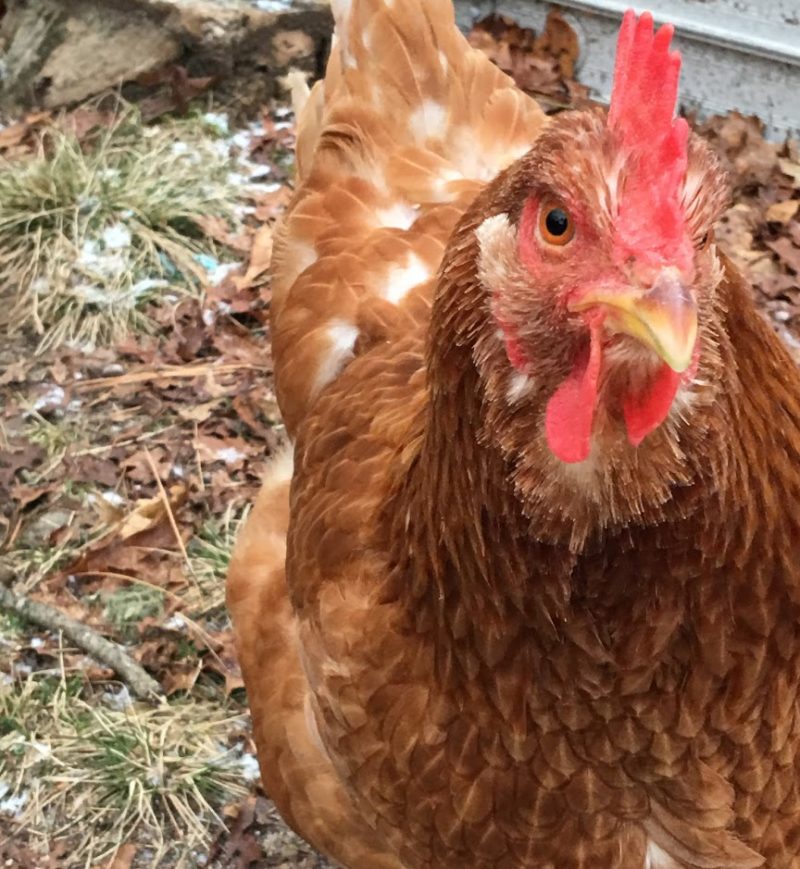
Breed
There are hundreds of breeds of chickens – some have been bred for egg laying, some for meat, some as dual purpose, some for show. When selecting chicken breeds keep this in mind. If you want the most eggs possible, select one of the hybrid production breeds like Golden Comets or Red Stars. Other great layers include Rhode Island Reds, Plymouth Rocks, and Sussex. When these chickens are young, you can expect 5-6 eggs per week. Some of the fancier breeds like Polish, Seabrights or Sultans might look lovely in your backyard but these show birds even during their peak laying will only give you 1-2 eggs per week. Click here to read about selecting chicken breeds
Molting
In general, your birds will molt their feathers once a year. During their molt they will shed their old, ragged feathers and regrow nice new feathers to keep them well insulated during the winter. Some years your girls might only lose a few feathers, others it can look like a pillow fight broke out overnight leaving them nearly naked! Because feathers are made of 85% protein and regrowing feathers is hard work, your hen’s body will divert all it’s energy into growing feathers. This will temporarily shut down the egg factory.
Depending on how hard the bird is molting and how old she is, this can mean she won’t lay an egg for anywhere from a couple weeks to a couple months. Molting most often takes place in early fall, but it can also be brought on by stress (from predators, lack of resources, raising chicks, or changing flock dynamics). If it’s fall and you are finding feathers everywhere, this is likely the cause of the empty egg basket. Click here to read more about caring for your flock during molting
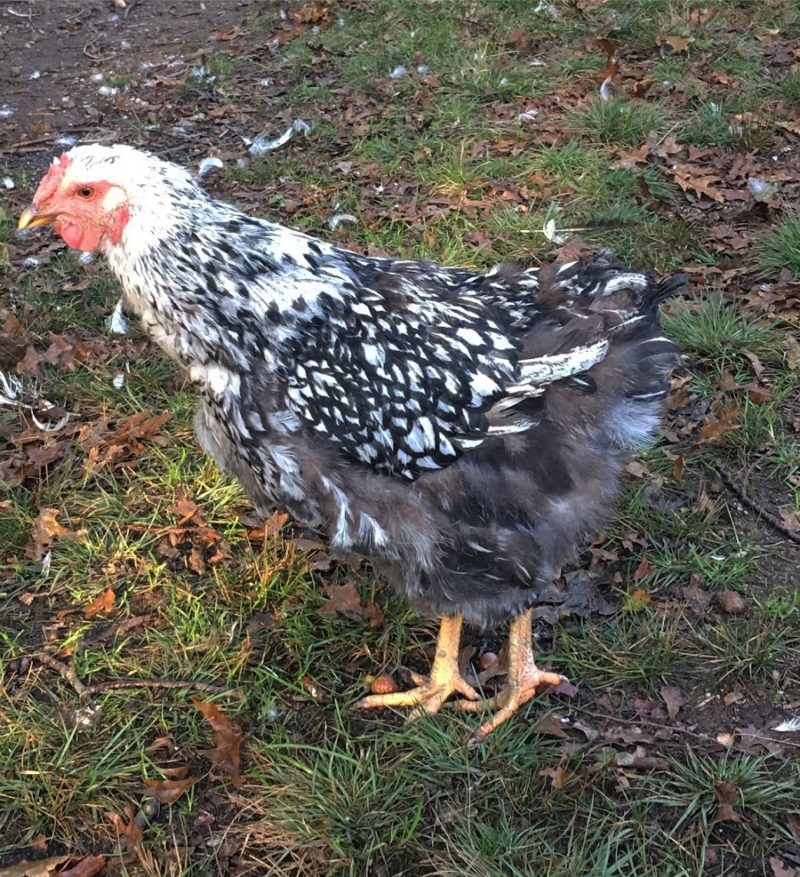
Short Winter Days
Your hen’s reproductive system is governed by her pituitary gland. This small gland is located beneath a thin layer of bone in her skull. It is so thin that daylight can penetrate the skull. When the gland has accumulated 14-16 hours of sunlight, it will send the signal to the ovaries to release an egg. This means during the winter when daylight is in short supply it can take a couple days to get enough daylight stored to produce an egg.
In my corner of the world, I notice the egg basket getting lighter around mid September (when we have about 12 hour of daylight). By the time the winter solstice rolls around in late December I might get under one dozen eggs a week from nearly two dozen birds (with 9 hours of daylight). By mid March we are back up to 12 hours of daylight and things pick up a lot – then spring hits and we are drowning in eggs! You can “trick” your girls into laying more eggs by providing artificial light in the coop if you want to continue getting eggs during the winter. Click here to learn more about supplemental lighting in the coop

Stress
If you hen is under stress, her body can suppress egg production. Just like people, some chickens can handle stress better than others. Some possible causes of stress: motherhood, fighting with flockmates, an overly affectionate rooster, extreme heat or cold, lack of water or food, predators, illness, parasites. Look familiar? A lot of the same stuff that stresses us out also stresses out chickens!
Broodiness
A broody chicken is a chicken that wants to be a mom. Some chickens will never go broody in their whole life, some seem like they never want to stop. Spring time is a popular time for hens to be broody, but it can happen at any time during the year. When a hen is getting ready to hatch out some eggs, she will collect her clutch of around 8-10 eggs, feather her nest and settle in to incubate them for about 21 days.
During that time she will not lay eggs, and she will hardly leave the nest. Some chickens are so intent on being mothers they will steal other hen’s eggs or even just sit on an empty nest patiently waiting for motherhood to find them. If your hen is stubbornly sitting in the nest box, not roosting at night and ruffles up her feathers when you come near, she is broody. Don’t expect any eggs from her until she either raises up some chicks or gives up her broodiness (which can take anywhere from a week to months!). Click here for info on breaking a broody hen
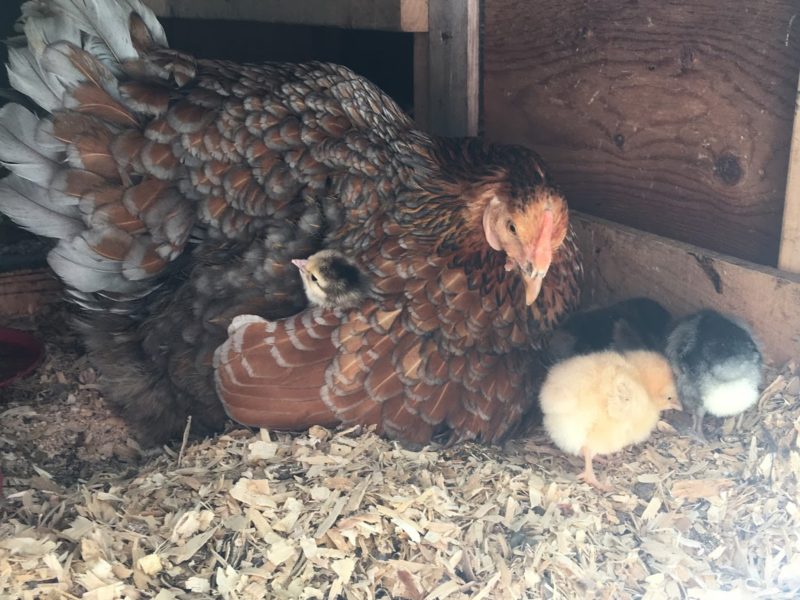
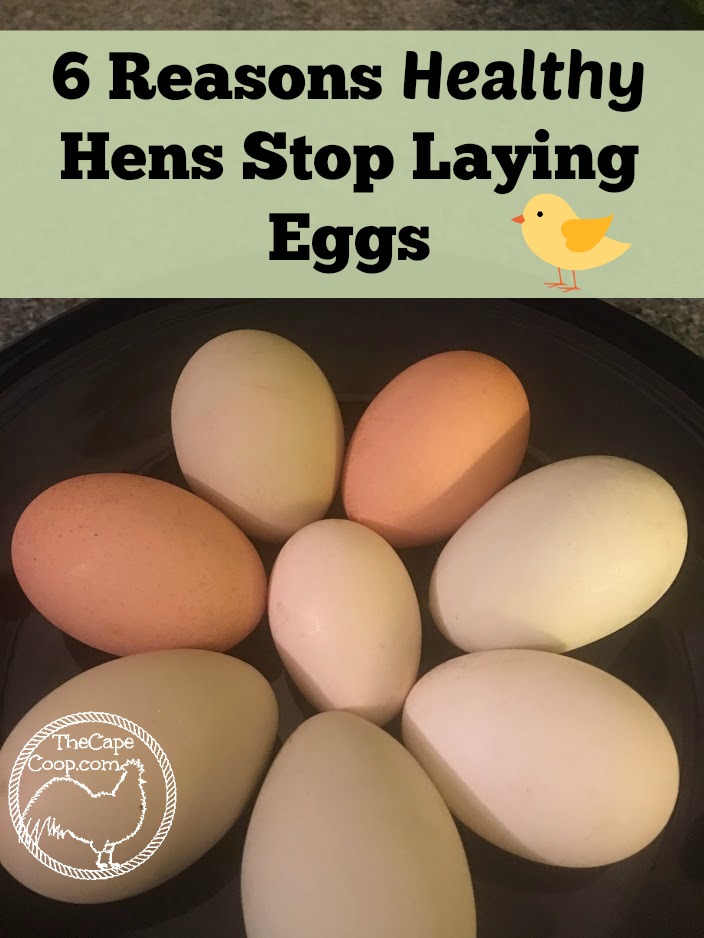

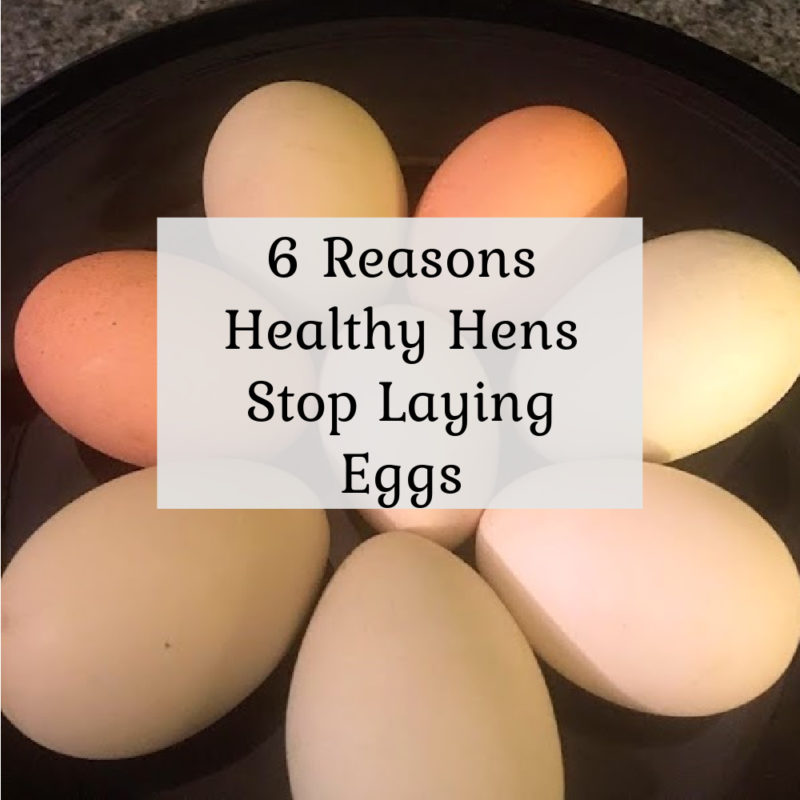




Stephanie ReadsWell
Wednesday 3rd of January 2018
The only thing I knew before is the age. This post is informative. I got to know some more reasons why hens stop laying eggs.